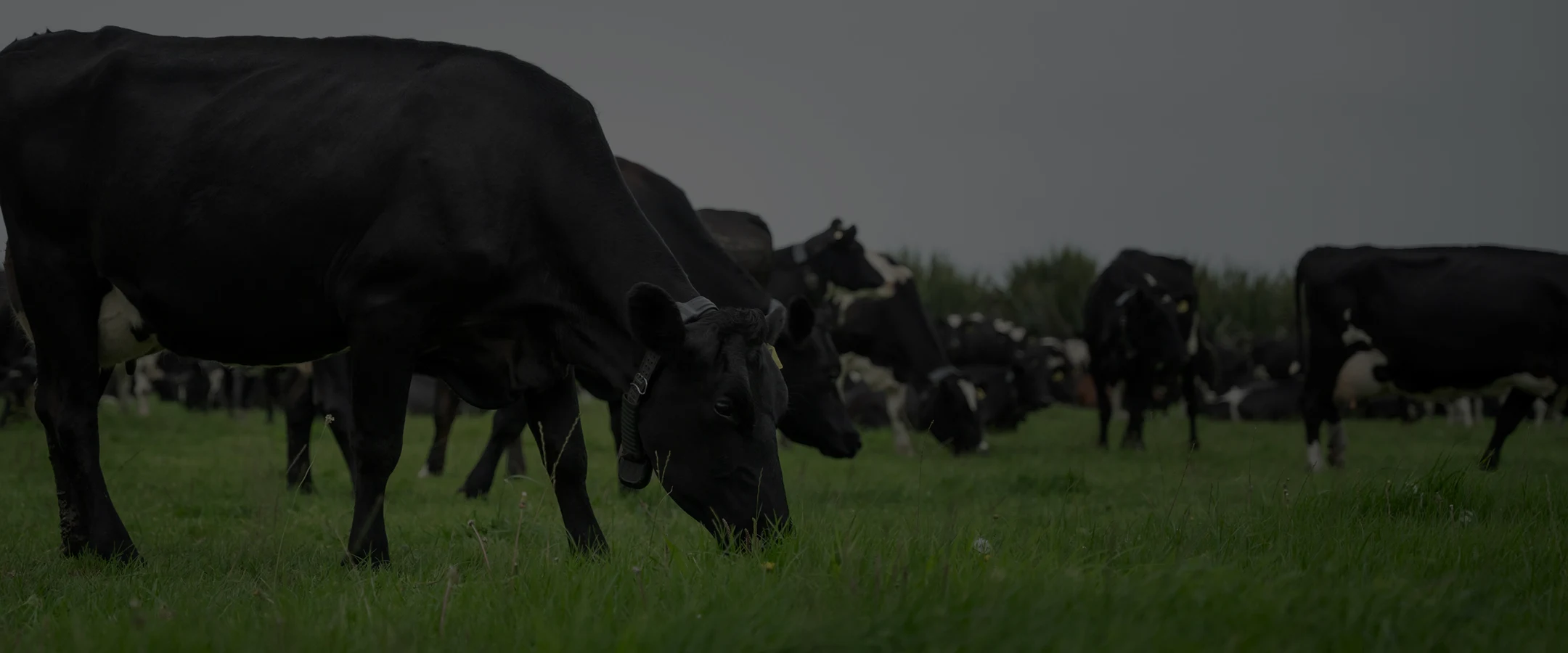
Return on Investment for 10 Halter Dairy Farms
Proven performance, powered by change
Across New Zealand, farmers are transforming how they work and what they achieve with Halter.
An independent study by AgFirst and Transform Agri analysed ten high-performing dairy farms, from Waikato to Southland. The results were clear - these farms using Halter achieved on average:
9% increase in pasture eaten
9.5% more milk solids per hectare
13% lift in profit before tax
and these results are in addition to reducing inputs, labour hours and improvements to work/life balance.
But these gains didn’t come from technology alone. They came from change. From teams rethinking how decisions are made, how pastures are managed, and how time is spent. Farmers combined Halter’s real-time insights, virtual fencing, and cow behaviour data with strong leadership, team management and smarter systems to unlock more productive, profitable, sustainable, and enjoyable farming.
This is what happens when technology empowers people to work differently, and better.
The Research
Research led by

James is based in Waikato and specialises in business planning, farm systems design, environmental management and agribusiness projects, with experience across New Zealand and internationally. A 2023 Nuffield Scholar and former leader in several agricultural organisations, he promotes the evolving role of farming consultants in an increasingly technology-driven industry.

Julian is a farm management consultant based in the central South Island of New Zealand working primarily with the Dairy sector. He works across a range of farm management disciplines including financial, nutrition, agronomy, soils, animal production, succession and strategic development.
Case studies: Farms featured in the research
The study analysed ten dairy farms across New Zealand - five from the North Island and five from the South. Explore each farm’s background, the management changes introduced with Halter, and detailed performance results.
Otamatahae Farm
Milking 700 cows on 270 ha, Otamatahae Farm lifted pasture harvested by 17% per hectare and milk production by 33% per hectare. They achieved better outcomes with the same infrastructure and a reduced workload.
Gray Farm
A 173 ha farm milking 500 cows, Gray Farm achieved a 7.8% lift in pasture eaten and a 6.4% rise in milk solids. The 6-week in-calf rate improved from 76% to 80%. Adopting Halter freed up time for decision making and planning.
Mountview Farming Trust
Milking 320 cows across 163 ha, Mountview increased pasture eaten by 15% and improved labour efficiency with the number of cows/FTE increasing by 47%. EBIT rose 11%, with less stress and greater job satisfaction.
Ovation Farms
Running 620 cows on 220 ha effective, Ovation lifted milk solids by 8.4% per hectare and cut empty rates from 19% to 10.5%. Halter supported a more refined farm system and the overall work environment improved.
Grassmere Farms
A family business milking 900 cows across two platforms, Grassmere increased pasture eaten by 4.3% and staff numbers reduced by 1.5 FTEs. Cumulative impact across pasture, labour, and herd performance increased EBIT by 16%.
Waimakariri Farm
Milking around 1,000 cows on irrigated flats, pasture harvested rose 7.2% and milk solids per hectare increased 10%. Staff engagement and efficiency improved, allowing for a reduction in workload, and focus on higher-value activities.
Maronan Farm
A 1475-cow operation on 408 ha, Maronan Farm lifted pasture eaten by 6%, milk production by 6.5%, and improved their 6-week in-calf rate by 6%. Maronan Farm improved health monitoring, leading to better cow welfare and outcomes.
Willowcliff Farm
Milking 1,275 cows on 363 ha, Willowcliff increased pasture eaten by 22% and milk solids by 19%. Reproductive performance and staff efficiency also improved resulting in an EBIT increase of 29%.
Kokoamo Farms
A 1,875-cow, 510 ha system, Kokoamo lifted pasture eaten 7%, increased milk production by 4%, and reduced empty rates by 1.5%. Staff engagement improved, and EBIT increased by 1% from a high baseline despite lower nitrogen use.
Harakeke Farm
Milking 700 cows on 217 ha, Harakeke increased pasture eaten by 10% and lifted milk solids per hectare by 8.5%. EBIT rose 19%, with staff hours down 14%, and lameness reduced by 60%.
Unlock more productive, profitable, sustainable, and enjoyable farming with Halter
Click here to find your local Halter rep




